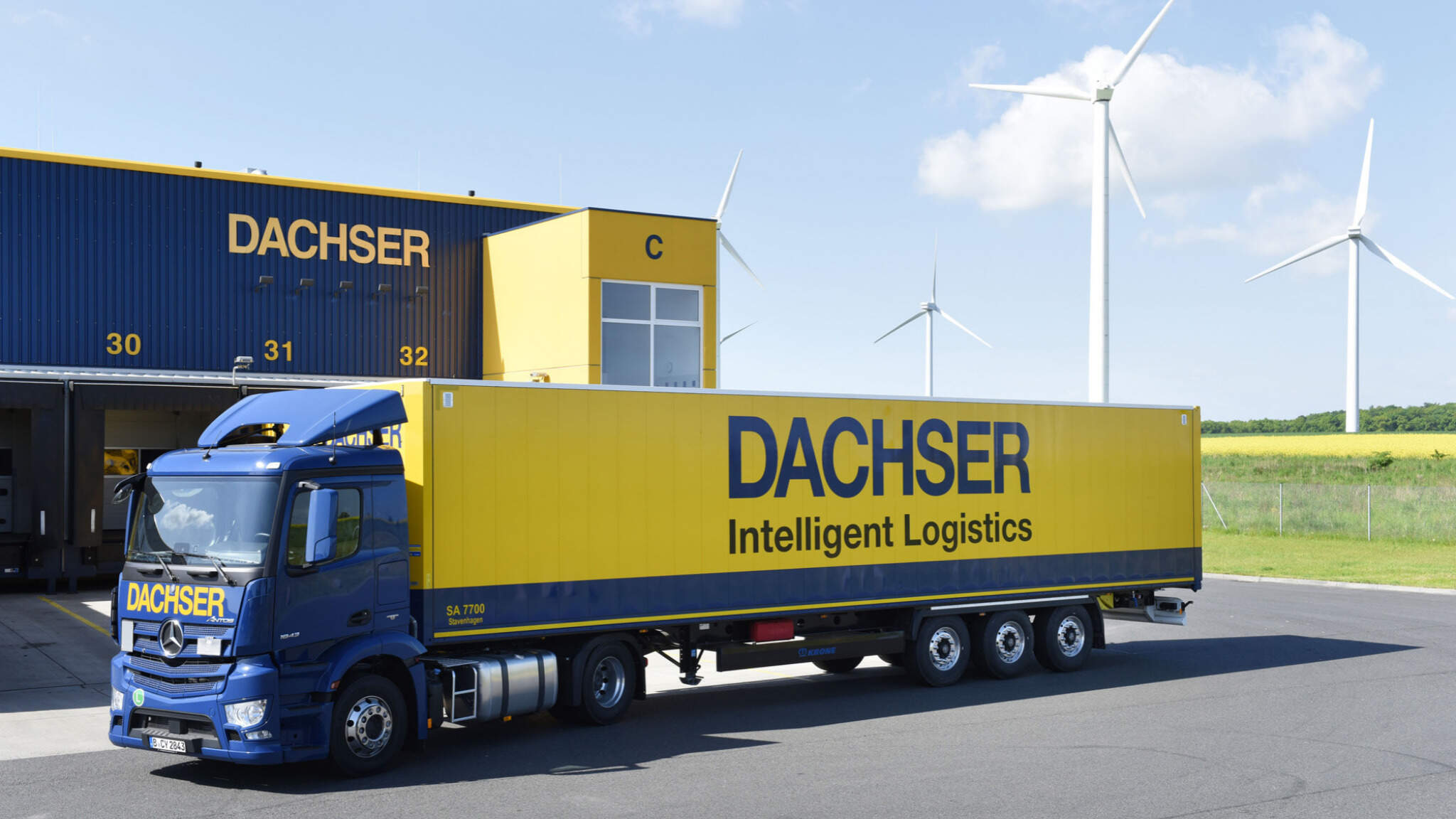DACHSER’s growth gets a tail wind
For the first time, the logistics provider achieves revenue of over EUR 6 billion with growth driven by strong export business in Europe and invigorated global trade

In the 2017 financial year, DACHSER for the first time achieved revenue of over EUR 6 billion. The global logistics provider increased its consolidated gross revenue by 7.2 percent to EUR 6.12 billion. DACHSER also set other company records by handling a total of 81.7 million shipments (+2.1 percent) weighing 39.8 million metric tons (+4.3 percent). On a global level, DACHSER created 1,648 new jobs in 2017.
“We systematically pursued our successful export strategy for European overland transport and gained an additional tail wind from invigorated global trade,” says Bernhard Simon, CEO DACHSER SE. “Rising rates for air and sea freight in particular helped us achieve a significant increase in revenue.”

We systematically pursued our successful export strategy for European overland transport and gained an additional tail wind from invigorated global trade.
Bernhard Simon, CEO DACHSER SEBusiness development in detail
In 2017, DACHSER’s Road Logistics business field—which comprises the transport and storage of industrial goods (European Logistics) and food (Food Logistics)—achieved gross revenue of EUR 4.44 billion (+3.1 percent). Shipments and tonnage increased by 2.1 and 3.6 percent respectively. In the European Logistics (EL) business line, a constant focus on European export business within the EL network once again provided for robust growth. In particular this applies to the EL North Central Europe business unit, which reported growth of an impressive 7.4 percent, but also to EL France & Maghreb and EL Iberia and the dynamic growth of their contract logistics business. “Germany remains the backbone of our operation, but France is well on its way to becoming a second pace setter for cross-border overland transport business. We’ve been systematically setting up this strategic logistics axis over the past few years,” Simon explains.
In the Food Logistics business line, growth was once again above average. This was thanks primarily to the German business, with a contribution from several new customers acquired for cross-border transports. “Five years on from the birth of the European Food Network, we can now take stock: the decision to establish a strong partner network under our system leadership was the right one,” says Simon.
In the Air & Sea Logistics (ASL) business field, greatly invigorated business combined with a rise in freight rates—especially in air freight—to push gross revenue up by 15.7 percent to EUR 1.79 billion. All three regional ASL business units saw double-digit percentage increases in revenue, with the Asia business achieving the largest revenue growth, of over 20 percent. The number of shipments the business field handled overall went up 6.7 percent, while TEUs and tonnage increased by 8.5 and 23.3 percent respectively.
“Air and sea freight is a volatile business with revenue as ever swinging between extremes,” says Simon. “We are, however, focused on ensuring sustainably profitable growth. So we are increasingly dovetailing our two business fields and are pushing forward with system integration.”
Forward-looking investment in network and personnel
Despite the favorable tail wind, which continued through Q1 2018, Simon recognizes capacity bottlenecks and the growing shortage of drivers as the major factors that could potentially limit future growth. “For this reason, our commitment to training has top priority.” In 2017, the first 22 professional truck drivers completed their training through DACHSER Service und Ausbildungs GmbH in Germany. In the same year, 106 drivers started their training at 35 German locations. “We want to increase the number of trainee drivers every year and establish our quality concept also in other European countries,” Simon announces.
DACHSER’s investment in network locations, fleets, technology, and IT systems increased by 5 percent to EUR 136 million in 2017. “Last year we vastly expanded our capacity in Germany, especially in the food business,” says Simon. DACHSER has announced that it has earmarked a further EUR 188 million for investment in 2018, this time focusing on industrial goods.